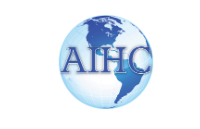January 26, 2024

HRSA Administrator Carole Johnson, Joined by Representative Lauren Underwood, Launches New National Maternal Health Initiative
On Thursday, January 25, Health Resources and Services Administration (HRSA) Administrator Carole Johnson, joined by Representative Lauren Underwood (D-IL), co-chair of the Black Maternal Health Caucus, launched a year-long Enhancing Maternal Health Initiative. The initiative will strengthen, expand, and accelerate HRSA’s maternal health work to address maternal mortality and maternal health disparities in partnership with mothers, grantees, community organizations, and state and local health officials across the country.
The kick-off event at the Kaiser Family Foundation in Washington, DC, included:
- HRSA maternal health grantees form 11 states
- District of Columbia
- Key national organizations
- Experts, providers, and individuals with lived experience
- Attendees shared personal perspectives on maternal health care and support
- Innovative ways HRSA grantees are making an impact on maternal health
- How maternal mental health is addressed.
HRSA’s Enhancing Maternal Health initiative aims to:
- Achieve measurable progress in maximizing the impact of HRSA grants and programs to address maternal mortality and improve maternal health
- Foster new partnerships and collaborations among HRSA grantees in high need, high opportunity jurisdictions to address maternal mortality and improve maternal health
- Strengthen HRSA’s internal capacity to maximize the impact of HRSA’s maternal health grants, programs and resources
This initiative focuses on parts of the country where:
- HRSA has significant investments
- There are significant opportunities for new partnerships and collaborations
- There is high need
- Arizona
- Alabama
- Georgia
- Illinois
- Kentucky
- Maryland
- Michigan
- Missouri
- Montana
- North Carolina
- Oregon
- District of Columbia
HRSA brings grantees from across the states of focus to foster cross-program and cross-state relationships, to drive progress in maternal health and end the maternal mortality crisis.
Learn More about the HRSA Maternal Health work







